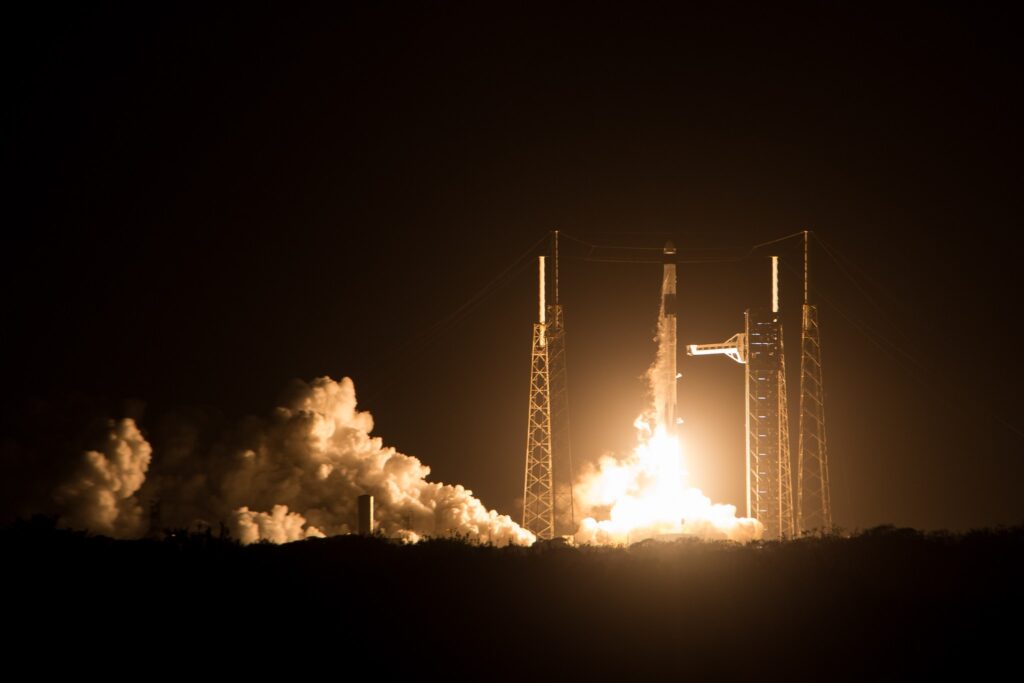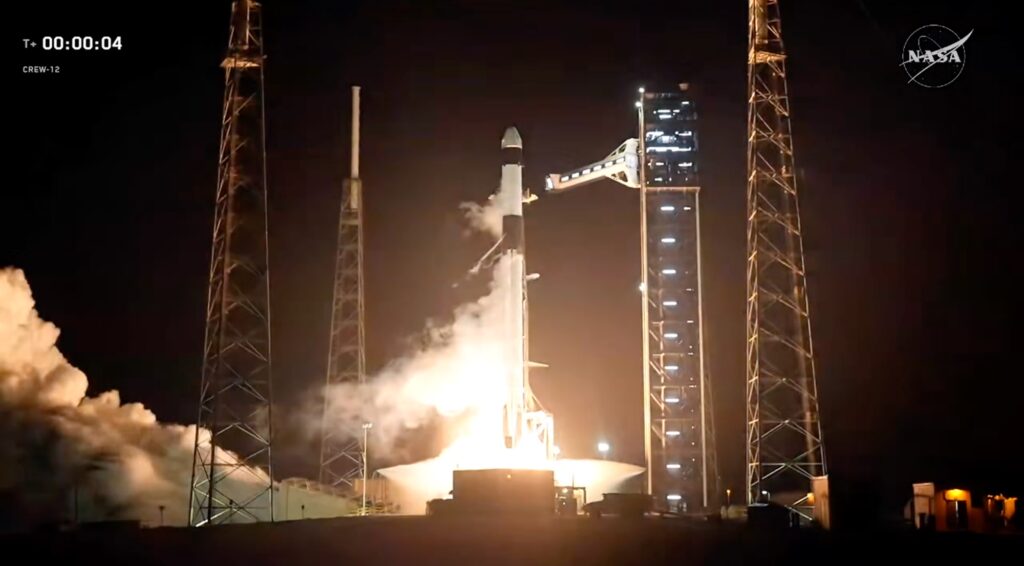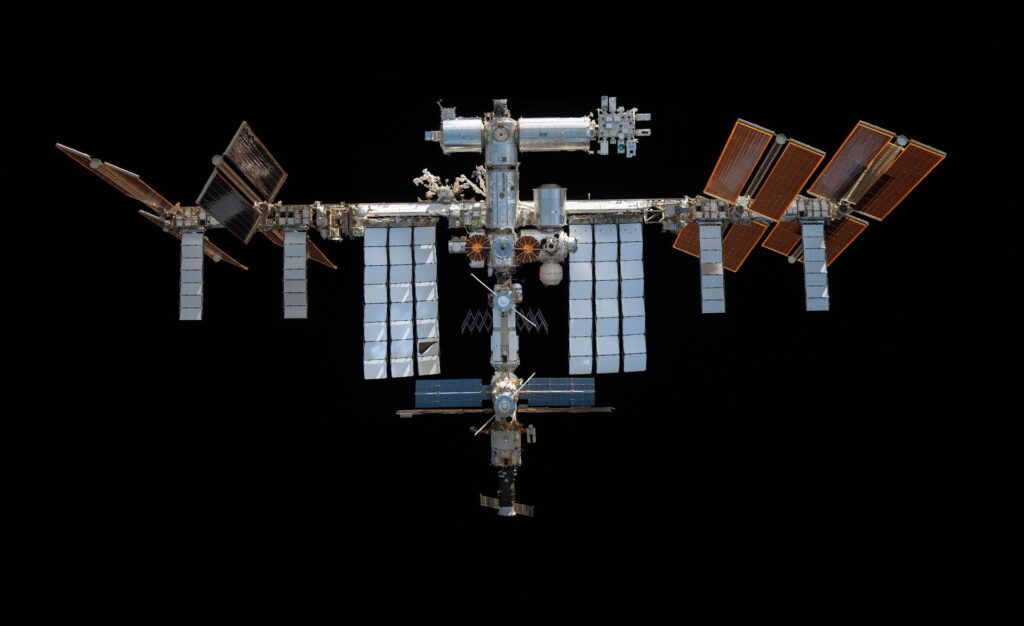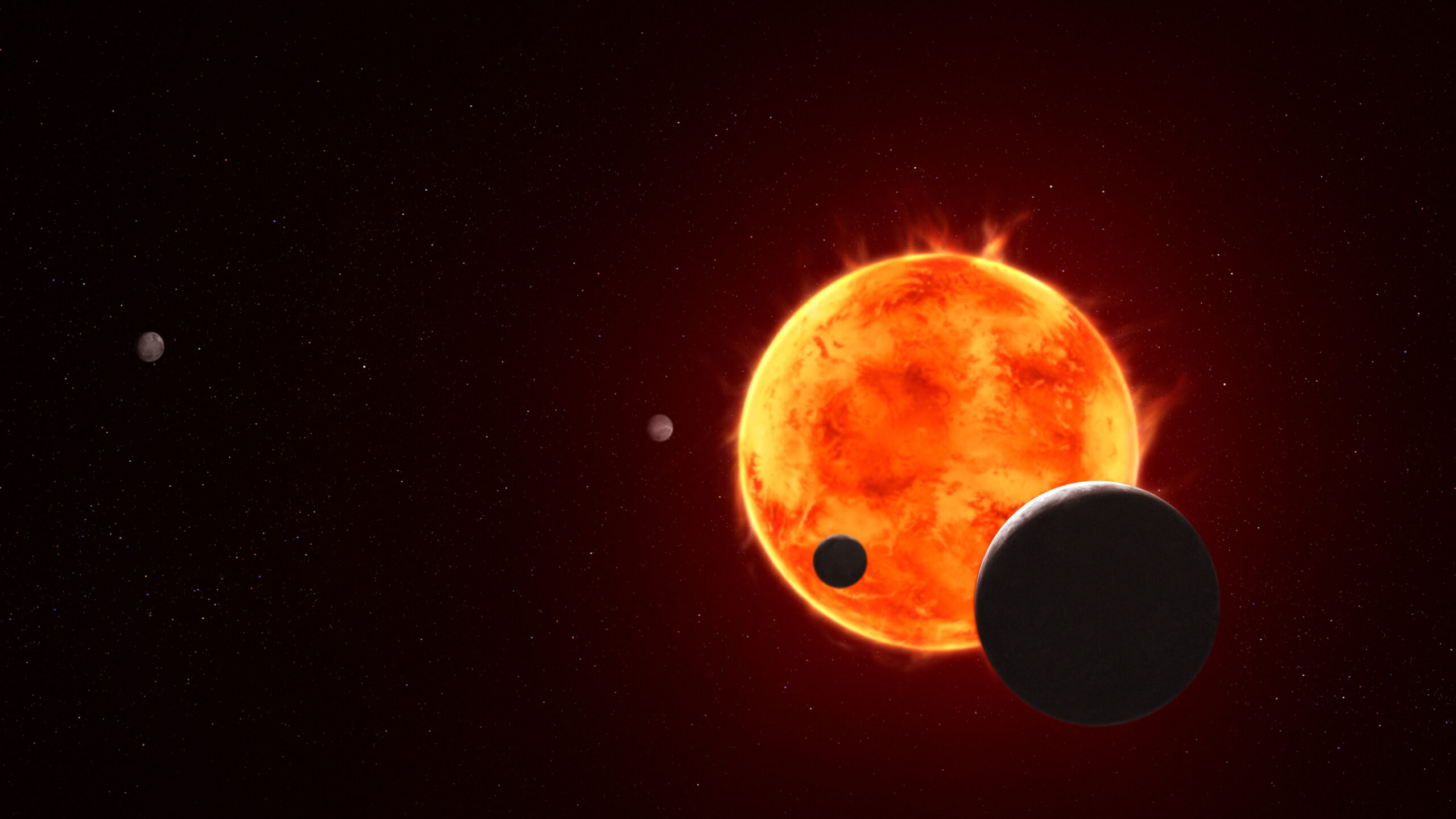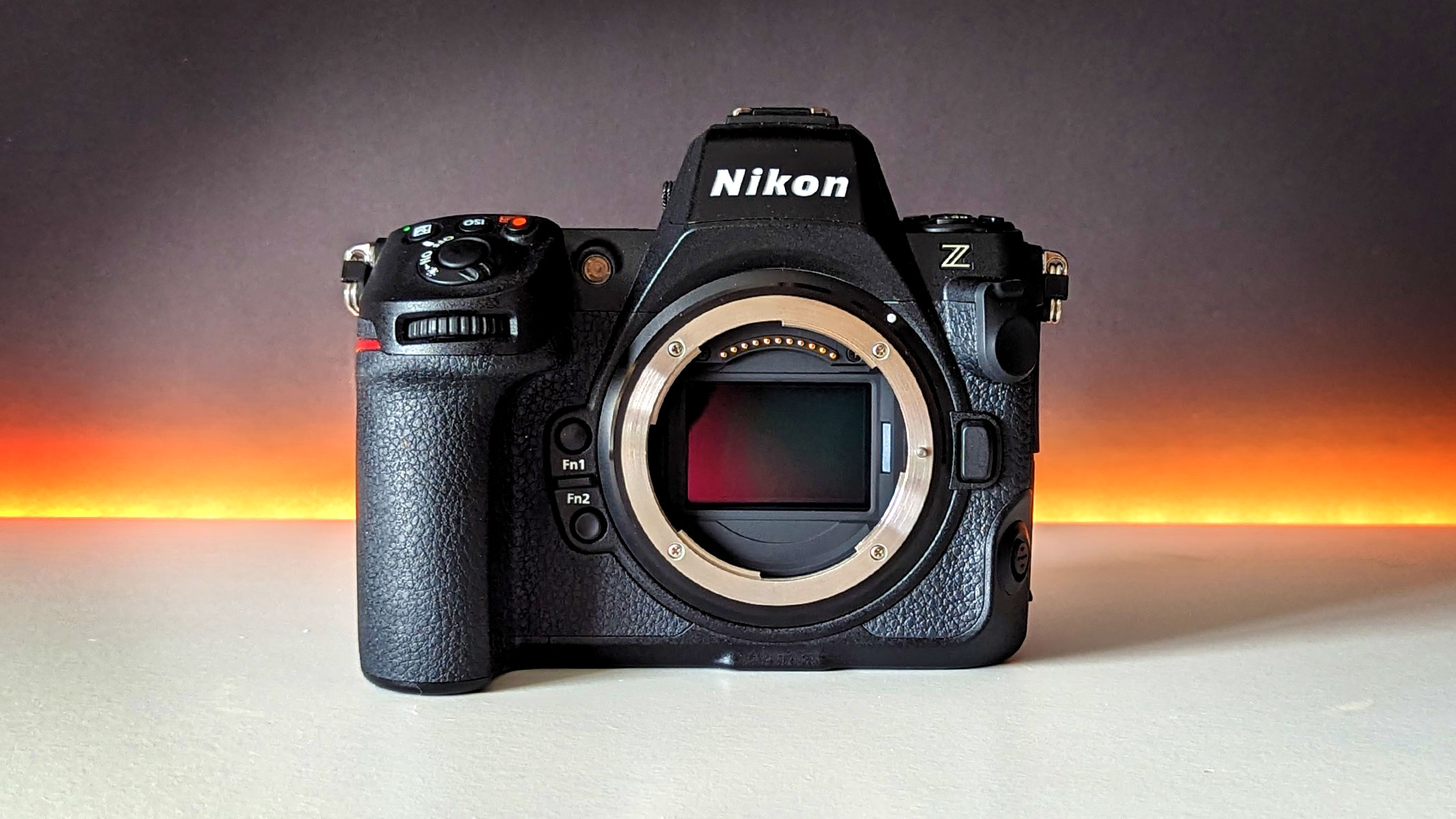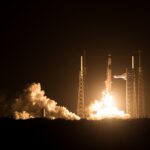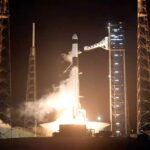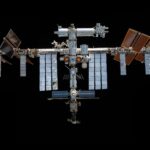Now Reading: Upcoming Cargo Missions Poised to Support International Space Station
-
01
Upcoming Cargo Missions Poised to Support International Space Station
Upcoming Cargo Missions Poised to Support International Space Station
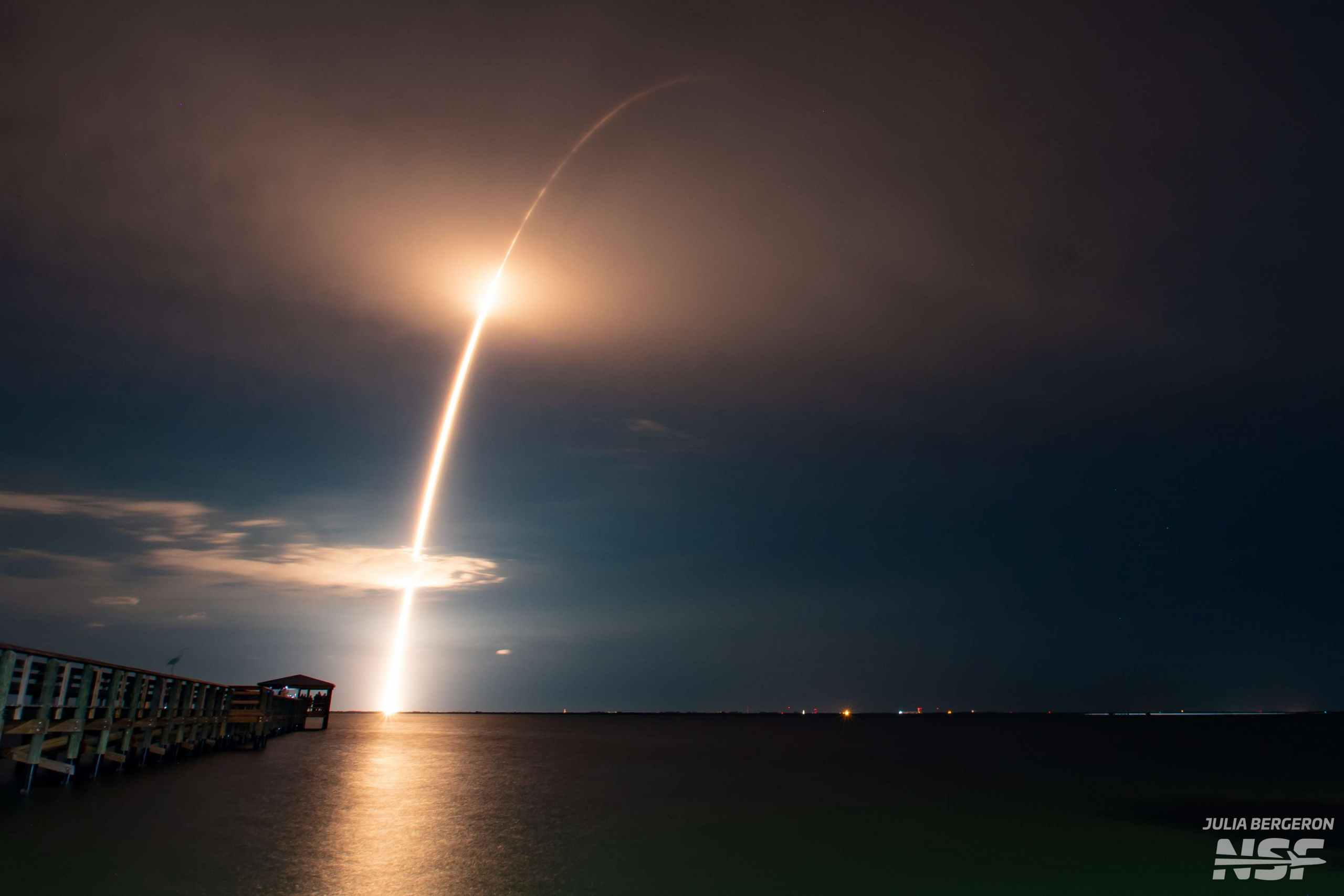

In an exciting week for space exploration, two pivotal cargo resupply missions are set to deliver vital supplies to the International Space Station (ISS). The first of these, Progress MS-32, is scheduled to launch atop a Soyuz 2.1a rocket on September 11, 2025, at 15:54 UTC from Baikonur Cosmodrome in Kazakhstan. This mission will be instrumental in supplying the ISS with 7,280 kg of cargo, including essential food, water, and scientific experiments, thereby sustaining the ongoing research and activities aboard the station.
The Progress spacecraft has a storied history as a workhorse for Roscosmos, continuously enhancing its capabilities with each new iteration. The current model, Progress MS-32, is equipped to ensure a reliable delivery of supplies, showcasing the advanced engineering that defines modern spacecraft. The Soyuz 2.1a rocket, distinguished by its robust design, features a central core supported by four liquid-fueled boosters that enhance its thrust during the critical launch phase. With each booster powered by RD-107A engines running on a refined kerosene and liquid oxygen mix, the rocket’s remarkable engineering allows for a smooth ascent into orbit.
As Progress MS-32 embarks on its journey, the spacecraft will navigate the intricate metrics of spaceflight to rendezvous with the ISS, where it will autonomously dock with one of the station’s ports. This autonomous docking capability very important, allowing for the safe transfer of cargo while minimizing the demands on the crew aboard the ISS. The delivery of supplies not only supports daily living for astronauts but also facilitates groundbreaking research that can only be conducted in microgravity.
Just days later, on September 14, 2025, Northrop Grumman’s Cygnus XL will take to the skies aboard a Falcon 9 rocket from Space Launch Complex 40 at Cape Canaveral Space Force Station. This mission marks the debut of the Cygnus XL, a stretched version of its predecessor, which is designed to carry an additional 1,300 kg of cargo. Named in honor of naval aviator and astronaut William “Willie” C. McCool, the Cygnus XL represents a significant investment in the future of space logistics.
The Falcon 9 rocket, renowned for its reusability, will use booster B1094, which has previously supported multiple missions, including crewed flights. This particular launch aims not only to enhance cargo capacity but also to incorporate innovative technology and robust design elements that Northrop Grumman and SpaceX have developed through years of experience in spaceflight.
The mission will deliver a mix of supplies required for ongoing ISS operations and various scientific experiments that leverage the unique conditions of microgravity. Both Progress MS-32 and Cygnus XL exemplify the collaboration between different nations and private industry, showcasing how teamwork in the sphere of space exploration fosters advancements that benefit humanity as a whole.
As we look forward to these launches, it’s worth considering how these missions impact life on Earth and the future of space exploration. The materials sent to the ISS through these cargo missions support experiments that could lead to advancements in medicine, materials science, and understanding fundamental physical phenomena. Moreover, they remind us of our profound connection to the universe and our capacity to work together in pursuit of knowledge and discovery.
The upcoming launches promise not only to improve the capabilities of the International Space Station but also to showcase the robust engineering feats achieved through international collaboration and technological advancement. The Progress MS-32 mission is a critical part of Roscosmos’s sustained efforts to maintain an uninterrupted presence aboard the ISS. With liftoff scheduled for September 11, 2025, at 15:54 UTC, the Progress spacecraft will deliver crucial supplies, including food and scientific experiments, that support the astronauts’ daily life and ongoing research activities. These supplies are essential, as they sustain not just the crew’s physical well-being but also enable experiments that require long-duration exposure to microgravity, which can lead to significant advancements in various fields, including biotechnology and physics.
Traveling aboard the Soyuz 2.1a rocket, the Progress MS-32 will use a sophisticated set of flight control mechanisms, thanks to its advanced navigation system. Once in orbit, the spacecraft will begin a carefully calculated approach to the ISS, employing its autonomous docking capabilities to align perfectly with one of the station’s docking ports. This sophistication is not merely a triumph of engineering but a reflection of rigorous testing and development, aimed at ensuring reliability and safety during such critical missions.
On the horizon, just days later, Northrop Grumman’s Cygnus XL is set to lift off on September 14, 2025, marking a significant milestone in the evolution of commercial cargo vehicles for the ISS. With a stretch design that allows for a staggering increase in cargo capacity—up to an additional 1,300 kg—Cygnus XL is set to revolutionize supply delivery to the ISS. Named after the remarkable William “Willie” C. McCool, this vehicle pays tribute to the spirit of exploration and innovation that defines human spaceflight.
The backbone of this launch will be the renowned Falcon 9 rocket, which showcases SpaceX’s commitment to reusability and efficiency. This mission, using booster B1094, will set off from Space Launch Complex 40 at Cape Canaveral Space Force Station. B1094 has a rich history of previous flights, solidifying its reliability as a workhorse in SpaceX’s fleet. As Falcon 9 powers through the atmosphere, it will demonstrate the meticulous engineering that allows for its boosters to return safely to Earth, ready to be refurbished for future missions.
Cygnus XL’s mission isn’t merely about transport; it signifies a leap towards operational efficiency in the logistics of spaceflight. The contents of Cygnus XL will include not just practical supplies but also scientific experiments designed to explore phenomena that can only be studied in the microgravity environment of the ISS. From advancements in drug development to understanding material properties under unique conditions, the potential impacts of the cargo carried by Cygnus XL could resonate across multiple disciplines back on Earth.
Additionally, both of these missions underscore a key aspect of contemporary space exploration: the collaboration between governmental organizations and private companies. As NASA continues to extend its partnership with commercial entities, missions like Progress MS-32 and Cygnus XL are vital, not just for resupply, but for nurturing a sustainable and innovative ecosystem in space. This cooperative model fosters shared advancements in technology and science, driving forward humanity’s quest to explore the stars.
In the weeks ahead, as we watch the launches unfold, it is essential to appreciate the intricate web of planning, engineering, and international cooperation that makes these missions possible. Each launch is a testament to human ingenuity and a stepping stone toward a future where space is more accessible and collaborative than ever.
Stay Informed With the Latest & Most Important News
Previous Post
Next Post
-
 01Two Black Holes Observed Circling Each Other for the First Time
01Two Black Holes Observed Circling Each Other for the First Time -
 02From Polymerization-Enabled Folding and Assembly to Chemical Evolution: Key Processes for Emergence of Functional Polymers in the Origin of Life
02From Polymerization-Enabled Folding and Assembly to Chemical Evolution: Key Processes for Emergence of Functional Polymers in the Origin of Life -
 03Φsat-2 begins science phase for AI Earth images
03Φsat-2 begins science phase for AI Earth images -
 04Hurricane forecasters are losing 3 key satellites ahead of peak storm season − a meteorologist explains why it matters
04Hurricane forecasters are losing 3 key satellites ahead of peak storm season − a meteorologist explains why it matters -
 05Thermodynamic Constraints On The Citric Acid Cycle And Related Reactions In Ocean World Interiors
05Thermodynamic Constraints On The Citric Acid Cycle And Related Reactions In Ocean World Interiors -
 06Binary star systems are complex astronomical objects − a new AI approach could pin down their properties quickly
06Binary star systems are complex astronomical objects − a new AI approach could pin down their properties quickly -
 07Worlds Next Door: A Candidate Giant Planet Imaged in the Habitable Zone of α Cen A. I. Observations, Orbital and Physical Properties, and Exozodi Upper Limits
07Worlds Next Door: A Candidate Giant Planet Imaged in the Habitable Zone of α Cen A. I. Observations, Orbital and Physical Properties, and Exozodi Upper Limits












